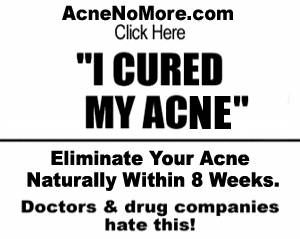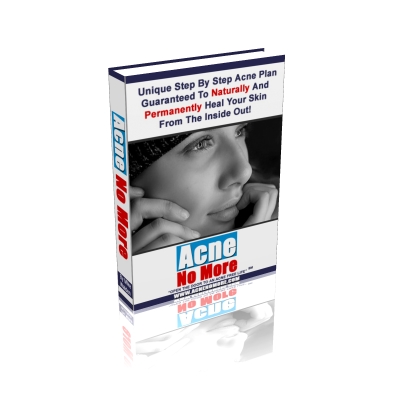Acne:Understanding the Role of Hormones and Effective Treatments
Acne is a common skin condition that often becomes a teenager's worst nightmare. It brings embarrassment, inconvenience, and a constant struggle to find effective solutions. Understanding the underlying causes of acne, particularly the role of hormones, is crucial in successfully managing and treating this condition.
Hormones and Acne
Hormones, particularly the male hormone 'testosterone,' can be major culprits in causing acne. During puberty, when the body undergoes significant changes, teenagers often experience abnormal levels of testosterone production. While most individuals outgrow this condition by their early twenties, some may continue to be affected for a longer duration.
Women, too, are susceptible to hormonal fluctuations during their menstrual cycle, which can exacerbate acne-related problems. Seeking medical advice from a doctor or healthcare professional can offer valuable solutions to address these hormonal imbalances and alleviate acne symptoms.
The Role of Stress and Other Factors
Stress is another factor that has been associated with acne. It is believed to trigger increased hormone secretion from the adrenal glands, which can contribute to acne breakouts. Additionally, hyperactive sebaceous glands, influenced by various hormonal sources such as menstrual cycles, stress, and testosterone, can contribute to the development of acne.
Moreover, some individuals may have overactive sebaceous glands, resulting in excessive production of sebum, an oily substance that contributes to acne formation. While sebum overproduction is not the sole cause of acne, it certainly plays a significant role. Combined with the accumulation of bacteria, dead skin cells, and skin irritation caused by scratching or rubbing, these factors contribute to the development and persistence of acne.
External Factors and Acne
Certain external factors can also trigger or worsen acne. For instance, the use of anabolic steroids by athletes has been known to cause or exacerbate acne. Additionally, some medications containing halogens such as iodides, chlorides, and bromides, as well as substances like lithium, barbiturates, and androgens, can contribute to acne formation.
Chlorine exposure, particularly in industrial settings, can lead to a severe and long-lasting form of acne known as chloracne.
Debunking Myths: Diet and Personal Hygiene
It is important to debunk some common myths associated with acne, starting with the notion that diet plays a direct role in acne development. For years, people believed that consuming fried foods and chocolate could lead to acne.
This misconception stemmed from the association between oily skin and fried foods, assuming that oil and grease consumption would make the skin greasier and more prone to acne.
However, there is no scientific evidence supporting a direct link between diet and acne. While a healthy, nutritious diet can improve overall health and potentially have an impact on acne, specific foods like French fries, pizza, or candy bars are not to blame.
Another misconception is that poor personal hygiene is the cause of acne. Many teenagers have endured embarrassment despite maintaining clean faces. Ironically, excessive washing and aggressive cleansing can aggravate acne symptoms. Rough washing or dry skin can cause further damage and worsen acne. Moreover, some over-the-counter acne products can clog pores and exacerbate the condition.
Effective Treatments for Acne
Fortunately, there are various effective treatments available for acne. Consulting a doctor is highly recommended for a tailored approach. Prescription medications can help control testosterone levels and assist women with menstrual cycle-related acne issues. In cases where medical consultation is not possible, pharmacists can provide valuable advice on over-the-counter remedies.
Apart from medication, adopting a moderate cleansing routine, practicing good nutrition by incorporating vegetables, fruits, lean meats, and whole grains into the diet, protecting the skin from sun damage, and allowing time for natural healing are all important aspects of managing acne effectively. It is important to remain encouraged, as with time, everyone can overcome acne, ultimately reclaiming their self-confidence and leaving behind the challenges of their teenage years.
In conclusion, understanding the relationship between hormones and acne is key to effectively addressing this common skin condition. By dispelling misconceptions and implementing the right treatments, individuals can regain control over their skin health, promoting a clear and blemish-free complexion.
Transform Your Skin: Discover Effective Acne Solutions Today!
Are you tired of battling acne and longing for clear, blemish-free skin? Look no further! Introducing AcneNoMore.com, your ultimate destination for conquering acne with a deep understanding of the role hormones play in this common skin condition.
At
AcneNoMore.com, we offer valuable insights into "Acne: Understanding the Role of Hormones and Effective Treatments." Dive into our comprehensive resources, where you'll uncover the secrets to combatting acne from within, addressing the hormonal imbalances that fuel its persistence.
Visit our
website today at and embark on a transformative journey towards clearer, healthier skin. Say goodbye to the endless struggle and hello to confidence and radiance!
Don't let acne hold you back any longer. Take action now and reclaim control over your skin's destiny. Click the link above to access
AcneNoMore.com and unlock the proven strategies for eliminating acne. Remember, a life without acne is within your reach!
Visit AcneNoMore.com today and embrace a future with radiant, acne-free skin!



















0 Comments